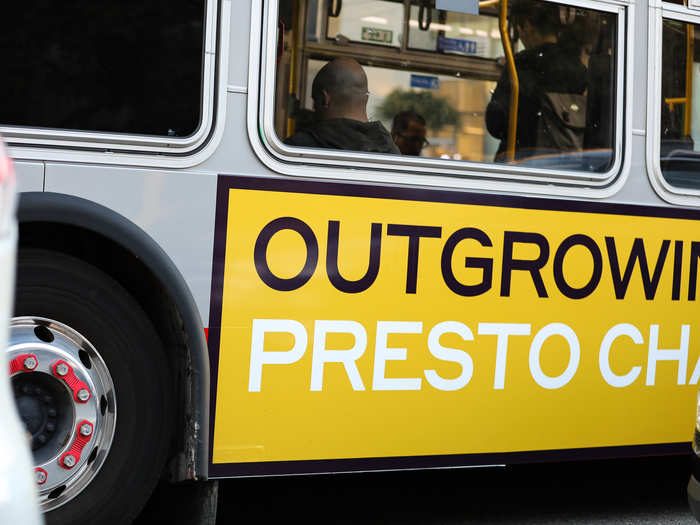
In an internal email sent to Rippling staff and shared with Business Insider, CMO Mark Epstein said "the whole thing started to feel like an episode of Silicon Valley" — an HBO show depicting a strikingly accurate portrayal of startup culture in the region — and decided to respond to Gusto with a brash, "lighthearted" poem, which was also shared with Business Insider, instead of heeding the C&D order:
"Our billboard struck a nerve, it seems. And so you phoned your legal teams,
who started shouting, 'Cease!' 'Desist!' and other threats too long to list.
Your brand is known for being chill. So this just seems like overkill.
But since you think we've been unfair, we'd really like to clear the air:
In general, we think Gusto's neat for Mom & Pop stores down the street.
You handle small-batch tasks like pros—like payroll, HR, all of those.
But businesses are growing creatures, and as they scale they need more features.
You know as well as us it's true because it happened once to you.
When Gusto tried to scale itself, we saw what you took off the shelf.
Your software fell a little short. You needed Workday for support.
The truth is firms—both big and small—need power features for it all:
Advanced reports for all locations, seamless Netsuite integrations.
We know it might sound like a flex, but we can handle the complex.
In short, we help a business run—with HR, IT all-in-one.
So Gusto, do not fear our sign. Our mission and our goals align.
Let's keep this conflict dignified—and let the customers decide."
Epstein told TechCrunch's Constine that Rippling hopes "our lighthearted poem gets this debate back down to earth, and we look forward to competing in the marketplace."

And now Rippling's bus ad vendor Intersection is doing the same after also receiving Gusto's cease-and-desist letter, an Intersection spokesperson told Business Insider, meaning a legal issue likely won't ensue since Gusto's requests were met.

Other high-profile examples are Apple's Mac vs. PC campaign or Bud Light attacking Coors Light and Miller Light for using corn syrup in its light beers.
Gusto's reasoning, according to its cease-and-desist letter sent to Rippling which it shared with Business Insider, is that Rippling's comparative ad is, in fact, factually inaccurate in its implication that a company can outgrow Gusto's software and services, despite the fact that Gusto itself outgrew its own systems.
According to AdAge, these kinds of comparative ads appeal to consumers when it's the underdog going after the "Goliath" of the two, even though Bud Light and other brands have broken this formula in the past.
Gusto, previously known as ZenPayroll, achieved unicorn status in 2015 when a round of funding pushed it over the $1 billion valuation mark. It was valued at $3.8 billion in July 2019, as Business Insider's Ben Pimentel reported, and employs 530 workers across its San Francisco and Denver offices.
Rippling's workforce sits at about 200 and has raised $52 million, according to Crunchbase. It was valued at $270 million in April 2019.
Gusto has avoided the oftentimes inescapably fratty company culture that's common in the Valley, as Business Insider's Melia Russell reported in 2018. The company operates out of an old machine warehouse in San Francisco's Dogpatch neighborhood, with its employees scuffling around barefoot or in socks or slippers thanks to a shoeless office policy.
Rippling is the brainchild of CEO Parker Conrad, who was ousted from HR software company Zenefits in 2016 when it was accused of selling insurance without a license by state and federal regulators. Conrad agreed to a $500,000 settlement with the SEC and did not admit or deny that the company violated federal securities laws.
 I spent 2 weeks in India. A highlight was visiting a small mountain town so beautiful it didn't seem real.
I spent 2 weeks in India. A highlight was visiting a small mountain town so beautiful it didn't seem real.  I quit McKinsey after 1.5 years. I was making over $200k but my mental health was shattered.
I quit McKinsey after 1.5 years. I was making over $200k but my mental health was shattered. Some Tesla factory workers realized they were laid off when security scanned their badges and sent them back on shuttles, sources say
Some Tesla factory workers realized they were laid off when security scanned their badges and sent them back on shuttles, sources say Why are so many elite coaches moving to Western countries?
Why are so many elite coaches moving to Western countries?
 Global GDP to face a 19% decline by 2050 due to climate change, study projects
Global GDP to face a 19% decline by 2050 due to climate change, study projects
 5 things to keep in mind before taking a personal loan
5 things to keep in mind before taking a personal loan

Copyright © 2024. Times Internet Limited. All rights reserved.For reprint rights. Times Syndication Service.